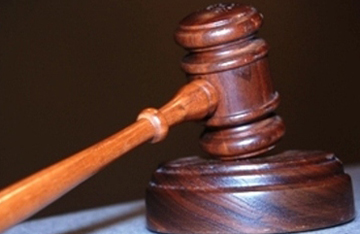A Downpatrick car dealer who sold three ‘clocked’ cars to unsuspecting consumers was today (4 December) given a two months custodial sentence, suspended for two years, and ordered to pay a total of £1,750 compensation to two of his victims at Downpatrick Magistrates’ Court.
In a case brought by the Trading Standards Service of the Department of Enterprise, Trade and Investment, Mr David Gregge, from Rocks Chapel Road, Downpatrick, pleaded guilty to three charges under the Fraud Act 2006 and a further four charges under the Consumer Protection from Unfair Trading Regulations 2008 (CPRs).
[caption id="attachment_44274" align="alignleft" width="360"] Downpatrick car trader given two year suspended sentence for ‘clocking’ three cars.[/caption]
Downpatrick car trader given two year suspended sentence for ‘clocking’ three cars.[/caption]
The prosecution comes on the first day of National Consumer Week, as Trading Standards begins a month long campaign urging consumers to ‘check it not regret it’ when buying a used car.
This case came about following a routine investigation into the sale of clocked vehicles in Northern Ireland. Investigations revealed that Mr Gregge purchased cars with high mileages from an auto trade centre in Belfast and then sold them with lower mileages. He advertised the vehicles for sale on various websites with lower mileages.
Investigations by the Trading Standards Service revealed that Mr Gregge sold three vehicles to consumers who had no idea that the cars they had purchased had their mileages altered. One car had a previous mileage of 112,000 miles reduced to 85,000, another was reduced from 136,000 to 95,000 while a third had been altered from 129,000 miles down to 93,000 miles.
Mr Gregge also admitted to passing himself off as a private seller of vehicles when he was, in fact, a car trader.
Mr Gregge admitted to supplying false service history books with the cars in order to legitimise the incorrect mileage.
Kerry McAuley of the Trading Standards Service said: “The Department views clocking and the sale of clocked cars as a very serious matter. The number of vehicles uncovered by this investigation and the degree by which their mileages had been altered, points to a systematic clocking operation by Mr Gregge. He purchased cars, with high mileages, reduced the mileage and sold them to unsuspecting consumers in Northern Ireland.
“Mr Gregge also went to great lengths to mislead his customers by using a false service book. This added another layer of deceit to his business operations as it helped ‘authenticate’ the mileage of the vehicle.
“Trading Standards is becoming increasingly alarmed at the scale of the problem. Recent cases have shown the extent to which some traders will go to make profits at the expense of the ordinary unsuspecting car buyer. We would like to assure the public that Trading Standards will take all necessary steps to identify, investigate and prosecute anyone found to be defrauding the public.”
Although it can be difficult to spot a clocked car, there are a number of practical checks that a consumer can make to check a used vehicle’s history prior to purchasing a vehicle.
Trading Standards offers the following advice to reduce the odds of buying a clocked car:
* Buy from a reputable dealer: Vehicles may cost more when bought from a main dealer but they will have carried out checks on the vehicle’s mileage before offering cars for sale.
* Bring someone with you that knows about cars: Excessive wear and tear on the driver’s seat, steering wheel and foot pedals may be inconsistent with the indicated mileage.
* Ensure that you see all of the relevant original paperwork: The logbook, the car’s service history and MOT certificates. With this information, you can contact the previous owners of the vehicle as well as the garages that carried out the servicing work to ask questions about the history of the vehicle. Everything should be present and correct. If it is not, simply walk away from the deal.
* If you know the registration and chassis numbers of a vehicle, you can contact the Driver Vehicle Agency to enquire about the recorded mileage of the vehicle at its previous MOTs. The chassis number is visible on the bottom left corner of most car windscreens.
* Finally, never buy a car from the side of a road and pay cash to somebody you don’t know.
Anyone who believes they have been sold a ‘clocked’ car should contact Consumerline on 0300 123 6262 or log on to:
]]>
























